 Owning your own home can be very rewarding as ownership gives you a sense of security and pride, allows you to customize your home to your liking (of course within limits in Switzerland) and to build equity and benefit from future home price appreciation. But homeownership in Switzerland also carries some risks and comes with potentially unexpected challenges, especially if you are a US citizen or green card holder.
Owning your own home can be very rewarding as ownership gives you a sense of security and pride, allows you to customize your home to your liking (of course within limits in Switzerland) and to build equity and benefit from future home price appreciation. But homeownership in Switzerland also carries some risks and comes with potentially unexpected challenges, especially if you are a US citizen or green card holder.
The Swiss deemed (or imputed) rental income and the Swiss wealth tax
The biggest tax surprises for Americans moving to Switzerland are the deemed rental income and the Swiss wealth tax on your worldwide assets.
If you own your primary residence in Switzerland, your Swiss taxable income will increase by a deemed rental income or “Eigenmietwert” in German and “valeur locative” in French. The amount of deemed rental income is determined by the cantonal tax authorities and varies greatly. On average it is typically about 60 to 70% of the potential rental income you could get by renting out your property at market rates.
To offset this additional ‘income’, homeowners can deduct the mortgage debt, maintenance costs and value-maintaining expenses such as repairs and renovations from their taxable income. Due to the current interest rate environment in Switzerland, mortgage costs are very low and the vast majority of homeowners end up paying more in Swiss income taxes than renters.
Your wealth does not change when you buy a property in Switzerland as it is typically financed with your own funds and a mortgage. However, the assessed value of the property for tax purposes is usually substantially lower than the purchase price or market value of the property, which will lead to a reduction in your Swiss wealth tax. However, be also aware that your taxable wealth could grow, should you decide to use funds from tax deferred and wealth tax sheltered accounts such as the Swiss 2nd pillar to help finance the property.
US income taxes on phantom gains on your mortgage
Even if the property is located outside the United States, mortgage interest continues to be deductible from US taxes and the current deduction limit of USD 750’000 in loan value (for new loans) also applies to foreign mortgages.
However, one major risk of owning your place in Switzerland is the risk of a phantom gain in your US taxes due to a change in the USD/CHF exchange rate upon renewal of your Swiss Franc denominated mortgage.
To illustrate this, let’s assume that you get a CHF 1 million 10-year fixed mortgage when the USD/CHF exchange rate is 1. After 10 years, this mortgage is up for renewal and the USD appreciated against the Swiss Franc with an exchange rate change from changing 1 to 0.9. While the mortgage in CHF is still 1 million, the value of your mortgage in USD actually dropped from USD 1 million to USD 900’000, resulting in a phantom gain of USD 100’000. This gain is taxable at the US marginal income tax rate. To add insult to injury, should the Swiss Franc appreciate instead and create a phantom loss in USD, the IRS won’t allow you to deduct the loss from your US taxable income.
US and Swiss property gain taxes and foreign exchange rates
Another currency risk exists when you decide to sell your home as the purchase and sales prices must be reported in USD in your US tax return using the exchange rate on the date of the transaction. Most likely, the exchange rate will have changed during the period of ownership and the currency translation can also lead to capital gains in USD. However, the treatment is symmetrical and an appreciation of the USD vs. the CHF will simply reduce your capital gain in USD while a deprecation of the USD vs. the CHF will increase your capital gain in USD.
In regard to US taxation of capital gains, the same rules as for primary residences in the United States apply: If you have owned and lived in your home for at least two of the last five years, then you will be eligible to exclude a gain of up to $250,000 ($500,000 for married taxpayers) from your US taxes.
In Switzerland, realized capital gains on securities are not taxed at all but realized capital gains on real estate are taxed at the cantonal level. The tax varies from canton to canton and is generally lower the longer you have owned your property. In addition, the taxation of a gain from the sale of your home can be postponed if you use the sales proceeds to purchase a primary residence again. Such a purchase typically has to be made within two years after the sale, but rules vary by canton.
Opportunity costs, transfer taxes and other fees
To grant a mortgage, banks in Switzerland typically require home buyers to finance at least 20% of the home price with their own funds. Using funds for a down payment and not investing these funds into other assets, such as broad equity market exchange traded funds (ETFs), represent opportunity costs that also need to be taken into consideration. These opportunity costs of course vary, and they have to be put in the relation to the expected change in the value of your property during the period of ownership.
Further, the purchase and sale of real estate is subject to real estate transfer tax in most cantons. The tax varies from canton to canton and amounts to approximately 0.1% – 3% of the market value of the real estate. Finally, notary fees and charges from the land registry office will also be due.
What happens to the mortgage in case you leave Switzerland?
Should you decide to leave Switzerland while owning a piece of real estate in Switzerland, be aware that your bank might call your mortgage or that you will no longer be able to get a mortgage in Switzerland. You can of course always sell your Swiss property, or if you have enough funds, pay down your mortgage.
In conclusion, there are lots of benefits of homeownership but US persons need to be aware of all the various costs of homeownership in Switzerland, including the rather unique deemed rental income and the Swiss wealth tax. In addition, they need to account for potential costly US tax consequences due to foreign exchange rate changes, especially during periods of higher volatility and in light of high real estate valuations in Switzerland.
Jeffrey Haindl, CFA, CFP®
Marina Hernandez is an Investment Advisor Representative with Dynamic Wealth Advisors dba Swiss American Wealth Advisors. All investment advisory services are offered through Dynamic Wealth Advisors. Marina Hernandez also offers tax preparation services under MHTax. This is considered an outside business activity from Dynamic Wealth Advisors and is separate from Ms. Hernandez’s activities as an investment advisor representative of Dynamic Wealth Advisors.





